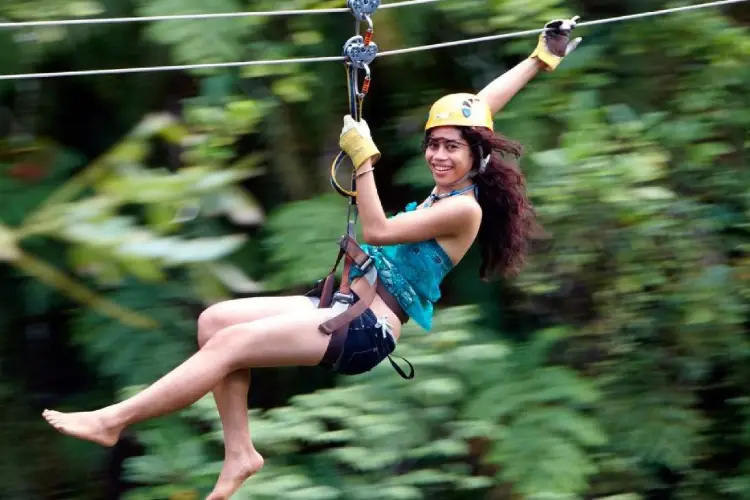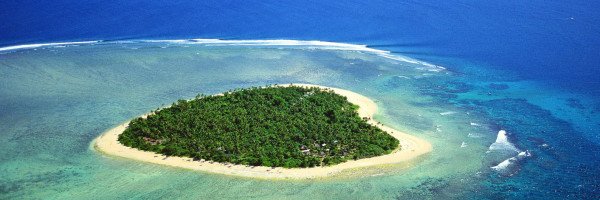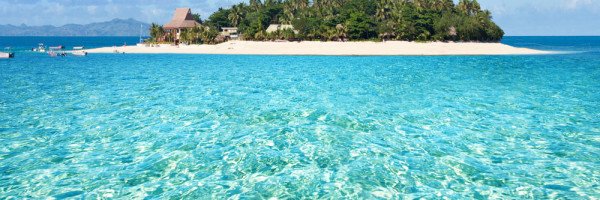Understanding Eco-Tourism in Fiji
Eco-tourism in Fiji is more than just a trend; it is a sustainable approach to travel that supports local communities and protects the environment. As New Zealanders increasingly seek travel options that minimize their ecological footprint, Fiji stands out with its rich biodiversity, stunning landscapes, and unique cultural experiences. Eco-tourism emphasizes responsible travel practices, allowing visitors to engage with nature without causing harm. Fiji’s eco-tourism initiatives focus on conservation, community development, and cultural preservation. Many resorts and tour operators are committed to sustainable practices, such as using renewable energy, recycling waste, and sourcing food locally. For New Zealanders, engaging with these eco-friendly options not only enriches their travel experience but also contributes positively to the islands’ ecosystems and communities. To explore the diverse eco-tourism options available in Fiji, check out Fiji Islands for a comprehensive guide on sustainable travel.Choosing Eco-Friendly Accommodations
When planning an eco-friendly getaway in Fiji, selecting the right accommodation is crucial. Many resorts and lodges offer sustainable options tailored for eco-conscious travelers. Look for eco-resorts that prioritize environmental stewardship, such as those using solar power, rainwater harvesting, and organic gardens for food sourcing. For New Zealanders, staying at a local eco-lodge not only supports the environment but also the local economy. One exemplary option is the Fiji Islands eco-lodges that provide immersive experiences in nature while ensuring minimal environmental impact. These accommodations often feature traditional Fijian architecture, providing a unique blend of comfort and sustainability. By choosing such lodgings, travelers can enjoy the beauty of Fiji while making a responsible choice that benefits the community.Engaging in Sustainable Activities
Sustainable travel in Fiji extends beyond accommodations to the activities travelers choose to engage in. New Zealanders can participate in various eco-friendly activities, such as guided nature hikes, snorkeling in protected marine areas, and visiting local villages that practice sustainable agriculture and fishing. One popular eco-activity is visiting the Bouma National Heritage Park on Taveuni Island, which offers stunning waterfalls and lush hiking trails. Here, travelers can learn about native flora and fauna while supporting conservation efforts. Another option is snorkeling at the Rainbow Reef, where guided tours educate visitors on coral reef health and marine ecosystems. By opting for these sustainable activities, tourists not only enjoy the natural beauty of Fiji but also contribute to conservation and community education initiatives.Supporting Local Communities
One of the core principles of eco-tourism is supporting local communities. For New Zealanders traveling to Fiji, engaging with local cultures and economies can enhance their travel experience while fostering sustainable development. Tourists can participate in community-based tourism initiatives, which allow them to interact with locals and learn about their customs, traditions, and challenges. Prioritize experiences that benefit the community, such as attending a traditional Fijian feast or ‘lovo’ (earth oven) cooking experience. Many tour operators offer these immersive activities, where travelers can not only enjoy delicious local cuisine but also contribute to the livelihood of the participating families. Engaging in such experiences helps ensure that tourism revenue directly supports the Fijian people and encourages preservation of their cultural heritage. To find more community-based experiences, visit Fiji Islands for a list of local initiatives.Practicing Responsible Wildlife Interaction
Fiji is home to diverse wildlife, both on land and in the ocean. For New Zealanders interested in wildlife interaction, it’s important to engage responsibly. Eco-tourism in Fiji encourages respectful observation of wildlife without disturbing their natural habitats. When snorkeling or diving, choose operators that follow strict eco-friendly practices to protect marine life. Avoid touching corals or feeding fish, as these actions can disrupt the delicate balance of marine ecosystems. For those interested in birdwatching, the islands boast unique species, including the endangered Fijian ground-dove. Joining guided birdwatching tours led by local experts can enhance your experience while ensuring that wildlife is respected and preserved. Always consider the impact of your actions on wildlife and their habitats, and opt for tours that emphasize conservation and responsible interactions. For more insights on wildlife experiences, consult Fiji Islands for resources and recommendations.Reducing Your Carbon Footprint
As eco-conscious travelers, New Zealanders can take proactive steps to reduce their carbon footprint while visiting Fiji. One of the most significant contributions travelers can make is to choose low-impact transportation options. Instead of relying solely on fossil fuel-powered vehicles, consider walking, cycling, or using public transport to explore the islands. Additionally, when booking flights, look for airlines that prioritize sustainability and carbon offset programs. Some airlines offer options to offset your carbon emissions by investing in renewable energy projects or reforestation efforts. This way, travelers can enjoy their Fiji island getaway while contributing to global efforts to combat climate change. Stay informed about local conservation projects, and consider participating in or donating to initiatives that focus on protecting Fiji’s natural beauty. To learn more about sustainable travel practices and carbon footprint reduction, visit Fiji Islands for helpful tips and resources.Embracing Cultural Respect and Education
Lastly, embracing cultural respect and education is a vital aspect of eco-tourism in Fiji. For New Zealanders, understanding and appreciating Fijian culture enriches the travel experience and fosters respectful interactions with local communities. Engaging with the Fijian people can provide invaluable insights into their way of life, traditions, and values. Travelers should approach cultural experiences with an open mind and a willingness to learn. Participate in cultural workshops, such as traditional weaving or pottery classes, to gain hands-on experience of Fijian craftsmanship. Additionally, be mindful of local customs, such as dress codes for visiting villages or participating in ceremonies. By showing respect for the local culture, travelers not only learn more about Fiji but also contribute to the preservation of its rich heritage. For more cultural insights and educational experiences, visit Fiji Islands to discover opportunities that foster cultural appreciation and understanding.FAQs
What is eco-tourism and why is it important in Fiji?
Eco-tourism is a responsible travel approach that focuses on preserving natural environments while promoting sustainable practices. In Fiji, eco-tourism is important as it helps protect the islands’ unique ecosystems, supports local communities, and encourages sustainable economic development, allowing travelers to enjoy the beauty of the islands while minimizing their environmental impact.
What are some eco-friendly activities to do in Fiji?
Fiji offers a variety of eco-friendly activities including snorkeling and diving in protected marine parks, hiking through rainforests, visiting sustainable farms, and engaging with local conservation projects. These activities allow travelers to appreciate nature while contributing to the preservation of Fiji’s stunning landscapes and wildlife.
How can New Zealanders travel sustainably in Fiji?
New Zealanders can travel sustainably in Fiji by choosing eco-friendly accommodations, such as eco-lodges that prioritize sustainability, using local transportation options, and supporting local businesses. Additionally, travelers should practice responsible wildlife interactions and be mindful of their waste disposal to minimize their environmental footprint.
What are some recommended eco-lodges for an island getaway in Fiji?
For a memorable ‘Fiji island getaway‘, consider staying at eco-lodges such as the Eco Lodge Fiji in Taveuni, or the Namale Resort and Spa. These accommodations are designed to blend harmoniously with the natural environment and often incorporate sustainable practices like solar power, organic gardens, and community engagement initiatives.
What wildlife can be observed while eco-touring in Fiji?
While eco-touring in Fiji, travelers can observe a diverse range of wildlife, including vibrant coral reefs teeming with fish, sea turtles, and various species of birds such as the Fiji Banded Rail. The islands are also home to unique flora and fauna, making it an ideal destination for nature enthusiasts and wildlife lovers.
Are there guided eco-tours available in Fiji?
Yes, there are numerous guided eco-tours available in Fiji that focus on sustainable travel practices. These tours often include activities like guided nature walks, snorkeling trips with marine biologists, and cultural experiences with local communities. Participating in these tours can enhance the travel experience while ensuring that it aligns with eco-tourism principles.
How can travelers support local communities through eco-tourism in Fiji?
Travelers can support local communities in Fiji by engaging in cultural experiences, purchasing locally made crafts, and dining at establishments that source ingredients from local farmers. Additionally, opting for eco-tourism initiatives that reinvest in community development helps ensure that tourism benefits the local population, preserving their culture and environment for future generations.
References
- Fiji Islands Official Tourism Website – A comprehensive resource for travelers, featuring sustainable travel options, eco-friendly accommodations, and information on protecting Fiji’s natural beauty while enjoying its diverse ecosystems.
- Ecotourism Australia – This organization provides insights into responsible travel practices and offers guidelines for eco-tourism, which can be applied by New Zealanders visiting Fiji.
- Responsible Travel – An online travel agency that promotes sustainable tourism, showcasing eco-friendly tours and accommodations in Fiji suitable for environmentally conscious travelers.
- World Wildlife Fund (WWF) – The WWF offers information on conservation efforts in Fiji and highlights eco-tourism initiatives that support local wildlife and natural habitats.
- Tourism Fiji – This site provides valuable resources on sustainable tourism practices, local eco-tour operators, and ways for visitors to engage with Fiji’s cultural and environmental heritage responsibly.







